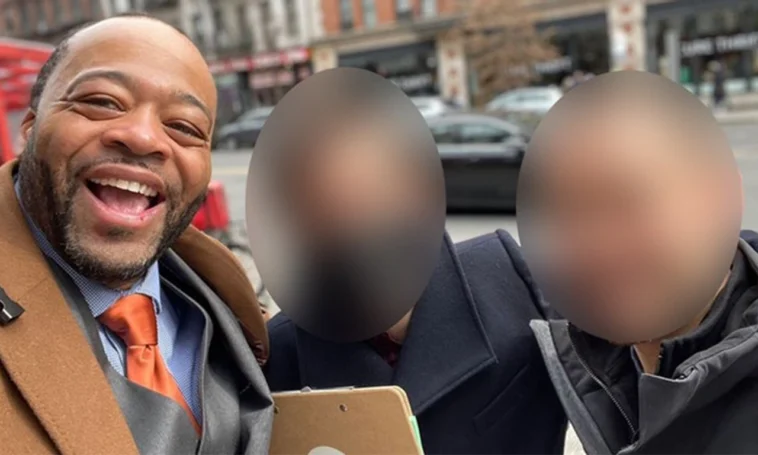Bronx judge releases suspects who assaulted cop without bail, following earlier decision to release migrant squatters. Bronx judge, known for releasing migrant squatters without bail, similarly frees suspects who attacked cop. This decision sparks controversy and raises questions about judicial discretion in handling cases involving violent offenders.
The case of Judge Eugene Bowen and his decisions regarding bail for suspects, particularly those accused of serious crimes, has ignited a broader conversation about criminal justice reform, public safety, and the role of judges in ensuring both. Bowen’s actions have drawn scrutiny, raising questions about the balance between protecting individual rights and safeguarding the community.
Bowen’s background as a former criminal defence attorney for the Legal Aid Society sheds light on his perspective and approach to the bench. His experience advocating for clients’ rights and navigating the complexities of the legal system may influence his decisions as a judge. However, the controversy surrounding his rulings suggests a deeper issue at play.
One of the most contentious aspects of Bowen’s decisions is his tendency to release suspects without bail, even in cases involving serious charges such as assault, possession of weapons, and drug trafficking. This has sparked criticism from law enforcement officials, prosecutors, and advocacy groups who argue that such leniency undermines public safety and erodes trust in the criminal justice system.
For example, in the case of Hector Desousa-Villalta, who was arrested on charges including criminal possession of a weapon and possession of controlled substances, prosecutors had requested bail set at $150,000 cash. However, Bowen chose to release Desousa-Villalta and five others without bail, despite objections from the prosecution. This decision raises concerns about the judge’s discretion and priorities in assessing the risks posed by the defendants to the community.
Similarly, in another case involving Kaream McClary and Izayiah Jessamy, who were arrested for assaulting a police officer, Bowen released them without bail, despite prosecutors’ requests for bail to be set at $10,000 or $30,000 bond. This decision drew outrage from law enforcement unions and officials, highlighting the tensions between judicial discretion and law enforcement priorities.
The controversy surrounding Bowen’s decisions is further compounded by the nature of the crimes involved and the potential implications for public safety. The presence of a 7-year-old child in the residence where weapons and drugs were found underscores the gravity of the situation and the potential risks to innocent bystanders.
Moreover, Bowen’s approach to bail raises broader questions about the efficacy of pretrial detention and the need for comprehensive reform of the criminal justice system. Critics argue that the current bail system disproportionately impacts low-income and marginalized communities, perpetuating inequality and incentivizing plea deals over trials.
“This shows the absolutely upside down world we’re living in,” Hendry said in a statement to the Post.
However, opponents of Bowen’s leniency argue that releasing suspects without bail, especially those accused of violent crimes or posing a flight risk, undermines public safety and erodes trust in the justice system. They advocate for stricter bail requirements and enhanced judicial oversight to ensure that defendants are held accountable for their actions.
The case of Judge Eugene Bowen reflects broader debates surrounding criminal justice reform and the role of judges in balancing individual rights with public safety concerns. While Bowen’s decisions may be informed by his experiences as a defense attorney and his commitment to upholding defendants’ rights, they also raise legitimate concerns about accountability and the protection of the community.
Ultimately, the controversy surrounding Bowen’s rulings underscores the need for comprehensive reform of the criminal justice system, including addressing disparities in bail practices, enhancing judicial accountability, and prioritizing public safety while upholding the principles of fairness and due process. Only through thoughtful and evidence-based reforms can we ensure a justice system that is equitable, transparent, and effective in serving all members of society.





Join the Community and Be a Part of the Conversation
You must be logged in or registered to post a comment.